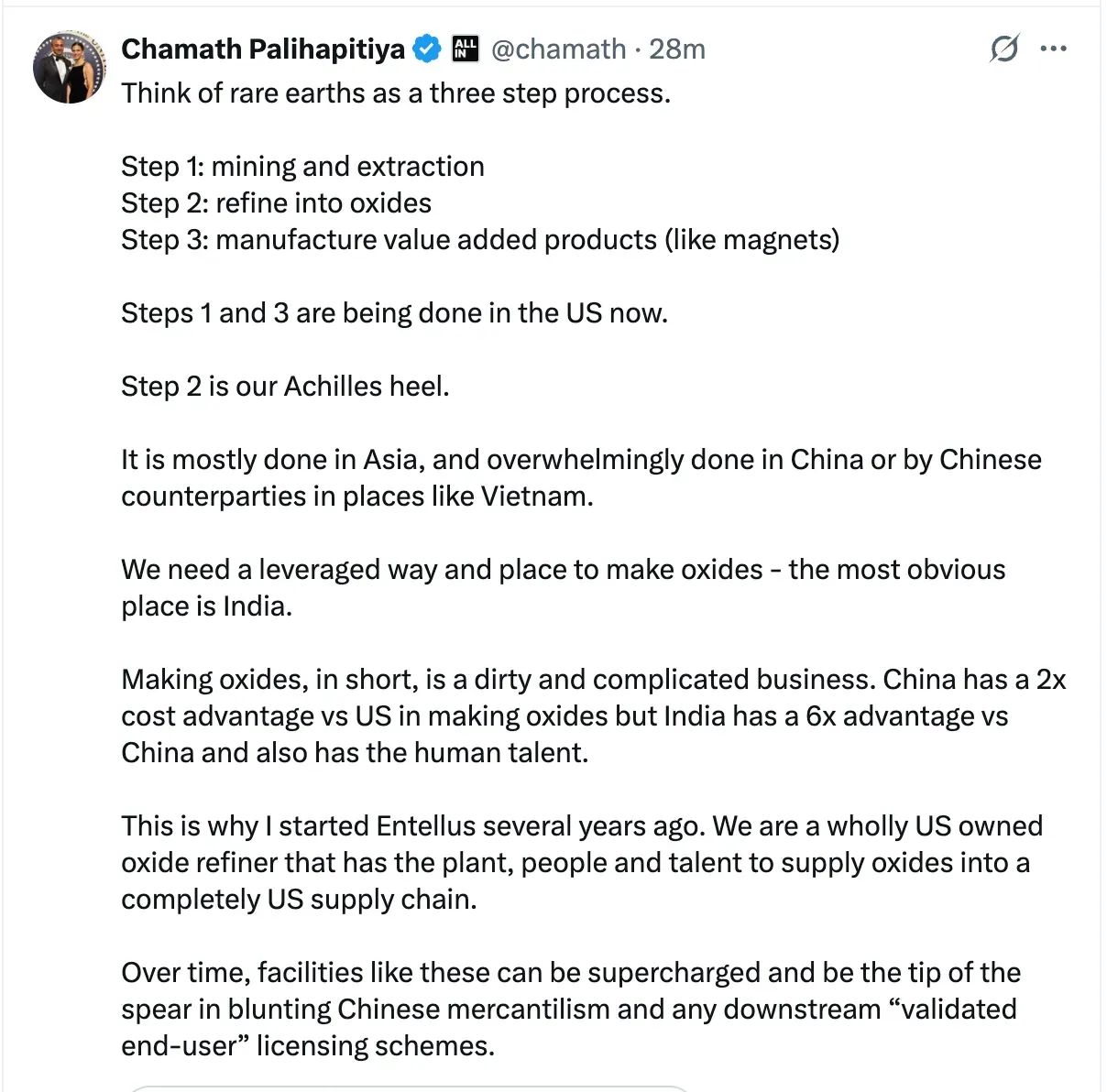The Social Capital founder wrote on X that the U.S. lacks refining capacity for rare earths despite strengths in mining and manufacturing.
Social Capital founder and venture capitalist Chamath Palihapitiya said on Tuesday that while the United States controls parts of the rare earth supply chain, such as mining and magnet manufacturing, its critical weakness lies in refining rare earths into oxides, a process dominated by Asia and particularly China.
“Step 2 is our Achilles heel,” he wrote in a post on X, noting that refining is “mostly done in Asia, and overwhelmingly done in China or by Chinese counterparties in places like Vietnam.”
Palihapitiya said the U.S. must find a “leveraged way and place to make oxides,” calling India the most obvious choice given its lower costs and skilled workforce.

India’s Cost Advantage Over China
According to Palihapitiya, refining rare earth oxides is a “dirty and complicated business,” but one in which India holds a significant economic advantage. “China has a 2x cost advantage vs the U.S. in making oxides, but India has a 6x advantage vs China and also has the human talent,” he said.
Palihapitiya suggested that India’s refining potential could help reduce China’s grip on the global rare earths market, which supplies critical materials used in electric vehicles, wind turbines, and defense systems.
The Missing Piece
Palihapitiya cautioned that investment in India’s refining capacity is unlikely to accelerate without a U.S.-India trade deal. Palihapitiya added that if such a deal were signed, India could become “the tip of the spear in blunting Chinese mercantilism and any downstream ‘validated end-user’ licensing schemes.”
The VanEck Rare Earth and Strategic Metals ETF (REMX) fell 1.36% in midday trade on Tuesday as tensions over rare earth elements between the U.S. and China continue to escalate. According to a report by The Wall Street Journal, Beijing is evaluating the use of a ‘validated end-user’ system to fast-track certain export licenses. This is reportedly intended to exclude companies with ties to the U.S. military while fast-tracking export approvals for other firms.
Despite the dip in share prices, retail sentiment around REMX flipped to ‘bullish’ from ‘bearish’ a day ago as chatter rose to ‘high’ from ‘normal’ levels.
Read also: NBIS Stock Rises After $3 Billion Meta AI Infrastructure Deal Despite Shaky Q3 Results
For updates and corrections, email newsroom[at]stocktwits[dot]com.<
